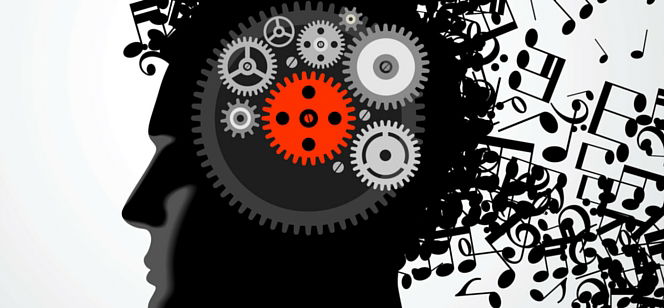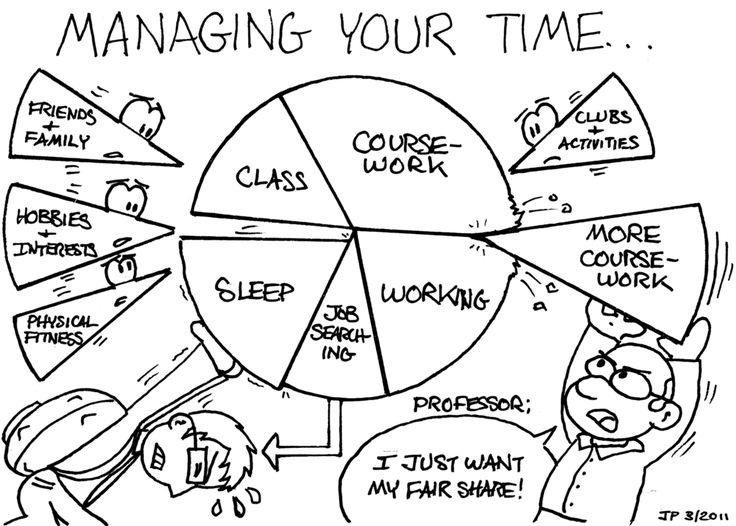How Playing in a Band Improves a Student’s Education

Students from the age of about fourteen to nineteen, typically those of High School age, experience a pivotal time in their lives. This is a period when purely academic pursuits blend with more artistic or trade related activities to shape well-rounded individuals. One such activity that has a profound impact on the students’ learning experiences is the concert band program. Beyond the notes and melodies, a concert band offers a multitude of educational benefits that enrich the overall learning experience. In this article, we will explore how a concert band program enhances a high school level curriculum in various ways.
In learning and performing music, the Gestalt Theory prevails – The whole is greater than the sum of its parts!
(NOTE: I have begun to include not only so-called traditional high school programs, but also those that revolve around home-schooling and its many variations.)

1. Fostering Discipline and Time Management
Participation in a concert band requires dedication, discipline, and effective time management. Students involved in band must learn to balance their academic responsibilities with rehearsals, practice sessions, and performances. This commitment to a schedule helps students develop essential life skills that extend far beyond their high school years. It teaches them the value of punctuality, responsibility, and dedication, qualities that are invaluable in any academic or professional pursuit.
Again, this requires carving out time from what the student might perceive as a busy schedule. Students may need help for this task because they may believe that time on social media or watching the latest movie is equally as important as studying, practicing an instrument or working on a trade skill. One of the most important life skills is the ability to accurately prioritize time and activities, including purposeful rest.
It may be necessary for parents, teachers, and other family or even community members not only to model such time management skills, but also to verbally teach them. They may need to help students make a list, chart or other visual aid to help manage their time and priorities.
2. Nurturing a Sense of Community
A concert band is, at its core, a community of individuals coming together to create beautiful music. This sense of community fosters a feeling of belonging and camaraderie among students. They learn to work as a team, depend on each other, and celebrate each other's successes. This social interaction can lead to stronger friendships and improved social skills, which are important aspects of personal development during these late teen years.
A sense of community, though, has to be nurtured. Most people don’t naturally, automatically fit into a group. It may be helpful to have some “getting acquainted” games and activities to help students realize their common bonds, especially as it applies to the music-making they will be doing.

3. Enhancing Cognitive Abilities
The act of playing a musical instrument engages various cognitive functions, including memory, problem-solving, and spatial reasoning. As students learn to read sheet music, understand different musical symbols, and play their instruments, they are constantly challenging their brains. Research has shown that involvement in music education can enhance academic performance in other subjects, particularly in mathematics and language arts. Playing music can help with abstract and three-dimensional thinking skills. It stimulates creativity and fosters critical thinking skills, all of which are beneficial for a high school student. Here’s a more specific list: STRUCTURE
- A musician’s brain will “rewire” itself. The nerves create new synapses (nerve pathways) and strengthen existing ones. Studies show that musicians’ brains also develop changes in its very structure. In a musician’s brain, the corpus callosum, the bundle of nerve fibers that connects the left and right hemispheres of your brain, becomes thicker. Because of that, information travels much faster between the analytical left brain and the creative right brain.
- In a musician’s brain, the cerebellum, which is responsible for motor control and coordination becomes larger. This allows the brain to be able to perform the complex movements required to play an instrument.
- The auditory cortex, the part of the brain that processes sound and speech, is enlarged in the brain of a musician, making it possible for them to process sound more efficiently.
PERFORMANCE
- Improved executive function is the first result of the brain’s improved structure. Executive function is how the brain goes about planning, making decisions, and solving problems. Musicians often show superior abilities in multitasking, strategizing, and adapting to new situations.
- Many musicians display improved working memory, the ability to hold and manipulate information in their minds. It helps them not only to remember complex musical pieces, but also remember vital academic information such as math formulas, historical dates, and chemical equations, among others.
- Training and experience as a musician improves the person’s ability to process language. Education in one’s native language becomes deeper and more efficient, and learning new languages becomes much easier.
- Learning and performing music, especially playing an instrument, can also enhance a musician’s ability to think spatially, perform complex mathematical problems, and mentally visualize and manipulate objects. Since a musician understands rhythm and musical notation, mathematical concepts like fractions and pattern recognition, the foundation for algebraic equations, become easier to grasp.

4. Developing Emotional Intelligence
For those not familiar with the term “Emotional Intelligence”, it means the ability to monitor one's own or others' emotions, including the ability to perceive, evaluate, and manage the emotions of oneself and of others.
Having that knowledge, we can definitely affirm that music is a powerful medium for conveying emotions. Playing in a concert band allows students to tap into their emotional intelligence. They learn to express themselves through music, conveying feelings and stories without words. This emotional awareness can help students better understand themselves and their peers, leading to improved interpersonal relationships and empathy, skills that are valuable in all aspects of life.
Sometimes, disagreements about the way a musical portion should be interpreted and played can be traced to different emotional responses to it. Different students, having heard something similar before, may likely have had a different emotional response to the music. In that case, it would be preferable for the students to put their own preferences aside and try to express the feelings that the composer is trying to convey.
Here's a more specific list of the Emotional Benefits of playing in a band:
- Playing an instrument helps musicians be able to regulate stress, manage emotions, and even boost their mood. Studies have shown that playing music can reduce cortisol levels (the stress hormone) and increase the production of feel-good chemicals like dopamine and serotonin.
- Playing music in a group setting can increase empathy and social bonding. Musicians learn to harmonize not just with notes, but also with other people’s emotions too, enhancing social cognition and emotional intelligence.
- Playing music also provides a boost in confidence and self-esteem. Improving one’s musical skills, and finally mastering it proves to the musician that success is possible.
- Learning to play an instrument teaches perseverance, discipline, and the value of practice – all skills that translate well into other areas of life. Plus, there’s nothing quite like the rush of nailing a difficult piece or receiving applause after a performance. It’s like a natural high, minus the questionable side effects.
- Many people listen to music to help with mood management. However, playing an instrument does that even better. (Personal Note – I have a friend who, when there was a possibility of storms and flooding in his community, broke out his guitar and played a while to stay calm. It works!)
5. Cultivating Perseverance
Learning to play a musical instrument is not without its challenges. Students often encounter difficulties and setbacks along their musical journey. However, the process of overcoming these obstacles fosters resilience and perseverance. It teaches them that success often requires hard work, patience, and a willingness to push through adversity. These are crucial life lessons that can serve students well in their future endeavors.
Here, too, is another occurrence of the need to prioritize. Students may need help with this area as well. Breaking each problem section into smaller groups and skill requirements will allow the musician to achieve small steps and build confidence.
6. Expanding Cultural Awareness
Through the study and performance of music from different time periods and cultures, students in a concert band program are exposed to a diverse range of musical traditions. It may even mean learning to play one’s instrument just a bit differently to accommodate the variation in style.
This exposure can broaden their horizons and enhance their cultural awareness. It encourages them to appreciate the richness of the gift of creativity given to us by God and the importance of preserving the best of cultural heritage. Such experiences can lead to a more well-rounded perspective and an appreciation of the different ways that music is interpreted and played.
7. Building Confidence Through Performance
Another way that students’ confidence grows is by noticing their progress in their musical abilities. They then will experience performing in front of an audience, building their confidence even further. The act of standing on a stage and sharing their musical talents instills a sense of pride and self-assurance. This newfound confidence can extend to other areas of their lives, enabling them to excel in public speaking, leadership roles, and other aspects of their high school experience.
It should be noted that confidence should never lead to arrogance or false pride. People, of any age, should be confident in what they can, and cannot, do, and the actual level at which they can perform those skills. Such elevated impression of one’s self can erode confidence in others, as well as undermine other positive aspects of the band, such as the sense of community.

8. Fostering a Lifelong Love of Music
Perhaps one of the most enduring benefits of a concert band program is its ability to instill a lifelong love of music. Many students who participate in band, especially in their late teen years, continue to play their instruments and enjoy music throughout their lives. Many people who have participated in music ensembles that played serious music, have developed a taste for better music, whether serious or pop. This lifelong connection to music can bring joy, relaxation, and a sense of fulfillment, enriching their overall quality of life.
The ability for music to improve a musician’s life is not confined to young people, however that may be defined. Playing, or even learning an instrument as an adult can help maintain cognitive function and may even promote neurogenesis (growing new brain cells). Playing an instrument can help stave off cognitive decline, improve memory, and even alleviate symptoms of conditions like dementia and Alzheimer’s.
In conclusion, a concert band program enhances the student of high school age in numerous ways, from fostering discipline and time management to nurturing a sense of community, enhancing cognitive abilities, and building confidence. The skills and experiences gained through participation in a concert band extend far beyond the realm of music, preparing students for success in all areas of their lives. So, as students take their seats in the band room, they embark on a journey that will not only fill the air with harmonious melodies but also enrich their educational experience and shape them into well-rounded individuals.
Schools are starting to recognize the value of integrating music into their curricula, and not just as an elective. If your school is treating music as an “also-ran” subject, let them know just how powerful it is in improving these far-reaching areas of students’, and adults’, lives.
Salt Cellar Creations understands the beauty and power that a Concert Band can convey and the challenge that band directors face in choosing the best music for their ensemble. SCC has a growing library of original works and arrangements to help meet the needs of band teachers and directors Find out more about what Salt Cellar Creations has to offer for Concert Bands HERE. Explore the available music HERE.
SCC can also compose an original piece for you or do a custom arrangement for you to allow you to showcase your group. There are two ways that this can be done; one is much more affordable than the other. CONTACT US for more information. And SCC is always looking for ideas of pieces to arrange or suggestions for original pieces.
We have sold music not only in the US but in Canada, the United Kingdom, France, Australia, and New Zealand, Austria, and Germany. Please visit the WEBSITE or CONTACT US to let us know what we can do for you!